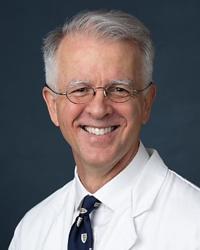Research Lab Results
-
IndoUS Clinical Research
Our IndoUS team, based both in Baltimore and in India, specializes in international clinical research (cohort studies and clinical trials), public health implementation science and education in infectious diseases, HIV/AIDS, tuberculosis (TB), vaccine preventable illnesses, antimicrobial resistant infections, and more recently COVID. Since 2003, our work has been focused primarily on India, where we are engaged in several Indo-JHU and international research collaborations. We partner with several leading medical and research institutions in India (e.g. BJGMC, DY Patil, Hinduja Hospital, KEM, Bharati Vidyapeeth, NIRT, JIPMER, CMC, Medanta, IISER, YRG, IIT), as well as others in sub-Saharan Africa, US and Brazil. We are actively involved in the following consortia: 1) Indo-US Vaccine Action Program sponsored RePORT India TB research consortium, which is funded by the US National Institutes of Health (NIH) and the government of India, Department of Biotechnology. 2) RePORT International TB Research Consortium, a multilateral global consortia for TB research, 3) US NIH funded multi-country HIV and TB trials consortia of the AIDS Clinical Trials Group (ACTG) and the International Maternal Pediatric Adolescent AIDS Trials Network (IMPAACT) Network, 4) NIH and AmFAR funded IeDea HIV/TB Working Group and the Treat Asia-IeDEA HIV and TB epidemiology databases, and 5) CDC SHEPHERD AMR studies. Our group has been awarded research grants from the US NIH, US CDC, UNITAID, Indian government, and several philanthropic foundations to investigate infectious diseases of importance to India and beyond.
-
Hoffmann Lab
The Hoffmann Lab is focused on reducing TB and HIV morbidity and mortality in the low and middle income settings through behavioral and implementation science approaches. Work has focused on understanding individual-level behavior towards linkage to care and continued care engagement for HIV and TB and using this knowledge to develop approaches to increase HIV testing, linkage to care, HIV viral load suppression, and retention in care. Other work has focused on health system strategies to improve service delivery and improve adherence to best practice to guidelines-based care. The group's research includes work on the general population, corrections inmates and ex-inmates, men at risk for HIV, and recently hospitalized individuals. Most of the research has been in South Africa and elsewhere in sub-Saharan Africa.
-
Michael A. Rosen Lab
Research in the Michael A. Rosen Lab primarily focuses on patient safety and simulation-based health care training and technology. Recent work provided examples of how human factors experts can collaborate with health care professionals and simulationists (experts in the design and implementation of simulation) to use contemporary simulation to improve health care delivery. Another recent study examined the anesthesia practice at two tertiary care hospitals in Sierra Leone, West Africa, where anesthesia is associated with high mortality rates. We identified gaps in the application of internationally recommended anesthesia practices at both hospitals, likely caused by lack of available resources.
-
Richard Chaisson Lab
Research in the Richard Chaisson Lab primarily examines tuberculosis and HIV infection, with specific focus on global epidemiology, clinical trials, diagnostics and public health interventions. Our recent research has involved evaluating a molecular diagnostic test for tuberculosis in HIV patients; observing TB responses during treatment of pulmonary tuberculosis; and examining antiretroviral therapy adherence, virologic and immunologic outcomes in adolescents compared with adults in Southern Africa.
-
Jonathan Golub Lab
Research in the Jonathan Golub Lab focuses primarily on the epidemiology of tuberculosis (TB), specifically in patients infected with HIV. We work with the CDC to explore potential delays in TB diagnoses as well as the risk factors that contribute to death from TB in the United States. Our research also includes ongoing studies of HIV and TB patients in Brazil and South Africa.
-
J. Hunter Young Lab
Research in the J. Hunter Young Lab focuses on the genetic epidemiology and physiology of cardiovascular disease and its risk factors, especially hypertension, diabetes and obesity. Current activities include an observational study of hypertension among African Americans; a genetic epidemiology study of worldwide cardiovascular disease susceptibility patterns; and several population-based observational studies of cardiovascular and renal disease. A recent focus group study found that changes in housing and city policies might lead to improved environmental health conditions for public housing residents.
-
Post Lab
The Post Lab is involved in the Multi-Ethnic Study of Atherosclerosis (MESA), a collaborative study of the characteristics of subclinical cardiovascular disease (that is, disease detected non-invasively before it has produced clinical signs and symptoms) and the risk factors that predict progression to clinically overt cardiovascular disease or progression of the subclinical disease. As MESA researchers, we study a diverse, population-based sample of 6,814 asymptomatic men and women aged 45-84. Approximately 38 percent of the recruited participants are white, 28 percent African-American, 22 percent Hispanic, and 12 percent Asian, predominantly of Chinese descent. Participants were recruited from six field centers across the United States, including Johns Hopkins University. Each participant received an extensive physical exam to determine a number of conditions, including coronary calcification, ventricular mass and function, flow-mediated endothelial vasodilation, standard coronary risk factors, sociodemographic factors, lifestyle factors, and psychosocial factors. Selected repetition of subclinical disease measures and risk factors at follow-up visits have allowed study of the progression of disease. Participants are being followed for identification and characterization of cardiovascular disease events, including acute myocardial infarction and other forms of coronary heart disease (CHD), stroke, and congestive heart failure; for cardiovascular disease interventions; and for mortality. Wendy S. Post, MD, MS, is an associate faculty, Welch Center for Prevention, Epidemiology, and Clinical Research, Johns Hopkins University, and a professor of medicine.

